Hair Loss
Causes Of Hair Loss
There are a number of factors that can contribute to hair loss. Lets examine a few
Commonly used chemicals in cosmetics, shampoos and conditioners that can cause hair loss:
- Sodium Lauryl Sulfate – This is the component in shampoo that is the lathering agent. Due to the foaming properties and the fact this is an inexpensive additive, over 95% of major brand shampoos use this chemical. The problem is, it is also a very powerful de-greaser. It is used in other detergents for garage cleaning tasks, including cleaning car engines. Though SLS contributes to removing dirt and grease from the scalp some of the residue can be left in the hair and it’s acidic properties can be very damaging to the scalp and follicles. source
- Parabens – These are xenoestrogens. Which is to say that they mimic hormones, thus disrupt the way hormones work. These imbalances can lead to tumors and mood issues. As a result, this can cause hair loss in women.
Propylene Glycol – This chemical is a byproduct of petroleum and considered a carcinogen. It is used in cosmetics and hair products as a skin conditioner to help reduce moisture loss. Testimony: “Whenever I use hair conditioners with propylene glycol, my hair falls out relentlessly and when I finally get what the problem is I stop using it and the hair loss stops. I won’t forget about this again. No more P. glycol for me.” read more here
- Diethanolamine (DEA) – This substance is used in the textile and agricultural industry and is often found in detergents, cleaners, fabric solvents, metalworking fluids, and cosmetics, as well as shampoos and conditioners. DEA in hair products can cause scalp irritation and allergic reactions. Not to mention, it can destroy nutrients such as keratin, making your hair dry, brittle and lifeless. source
- Fragrances – Studies have shown that chemical fragrances can behave as endocrine disruptors which altar the level hormones such as testosterone and estrogen. This change in hormone levels can contribute to hair loss problems.
- Imidazolidinyl Urea – Used in cosmetics and hair products as a preservative to prolong shelf life. It releases formaldehyde (forms a formaldehyde gas) in cosmetic products. Formaldehyde has been linked with certain types of cancers. Can also be damaging to your scalp, cause allergic reactions and raised blisters.
- Sodium Chloride – Also known as table salt, sodium chloride is used as a thickening agent. Those who swim in salt water are well aware of how ocean/sea water can dry skin and hair. This can lead to hair breakage and loss if these products are used frequently.
Alopecia Areata:

Common causes of Alopecia Areata:
- Genetic predisposition
- Environmental toxin exposure
- Age
- Thyroid disorder
- Heightened stress levels
- Hormonal instability (especially in women)
Other causes of hair loss:
Stress
Stress can impact the quality of health in a number of ways, as I have covered in other posts. Hair loss is one of which symptoms that can manifest. Young adults tend to have higher level of anxiety than older adults. A result of can be attributed to stress and a sedentary lifestyle. The hormonal imbalances that develop therein can be a probable factor to take into consideration.
Inadequate Nutrition
A diet that is out of balance can lead to hair loss as well. When the body is lacking in certain nutrients, vitamins and minerals that the hair, follicle and scalp need to fortify it, then hair quality and hair loss can be a consequence. Eliminating carbohydrates in favor of a high protein (extreme diet) can cause imbalances that may result in hair loss. Deficiency in the following nutrients and minerals are also considerations to account for:
- iron
- folic acid
- selenium
- essential vitamins
Prescribed Medications:
Any medication or medications are commonly going to trigger some variant of side effect or multiple side effects. Here is a list of meds that can contribute to hair loss:
- Antidepressants
- Anabolic steroids
- Anti cancer drugs/treatments (like chemo therapy and radiation)
- Blood pressure medications
- Pain killers
Often, these drugs can cause the follicles to go into state of trauma which leads to hair fall out/loss.
Severe/acute illness
Those who suffer from more serious types of illnesses like, malaria, typhoid or cancer might experience immoderate hair loss.
The postpartum phase of birth (following childbirth) can cause hormonal disturbances responsible for hair loss.
Other conditions:
- Diabetes – with diabetes, the blood supply to the hair follicle is reduced, thus starving the hair of blood supply and subsequent hair loss.
- Thyroid disorder – With a thyroid disorder, metabolism is thrown out of balance as well as hormones, which (as mentioned above) leads to hair loss.
Genetics:
Unfortunately, this is something many of us are born with and have to accept. Probably, the most common aspect of hair loss as it relates to genetic disposition is “male pattern baldness.” A type of testosterone called called dihydrotestosterone (DHT) is said to be responsible. Low estrogen levels often correlate with high DHT.
Natural Remedies For The Treatment And Prevention Of Hair Loss![By Nhtindia [CC BY-SA 4.0 (https://creativecommons.org/licenses/by-sa/4.0)], from Wikimedia Commons](data:image/svg+xml,%3Csvg%20xmlns='http://www.w3.org/2000/svg'%20viewBox='0%200%20800%20419'%3E%3C/svg%3E)
Along with eliminating or mitigating (to an extent that is possible or reasonable) some of the causes mentioned above, there are a number of courses in action that one can take to slow down and even eliminate hair loss, as well as, restore the growth of new hair “naturally.”
Foods to incorporate into your diet:
These foods are high in nutrients necessary for hair health:
- carrots
- cucumbers
- spinach
- alfalfa juice
- watercress
- parsnips
- oats
- beans
- sea salt
- seaweeds
- garlic and onions
- kimchi, kefir, kombucha and cultured vegetables – which are probiotic foods (see below on probiotics)
- pumpkin seeds, chickpeas and cashews – these foods are high in zinc (see below on zinc)
- Anti inflammatory foods – Replacing processed foods with whole (nutrient dense) foods that will fortify the body with anti-oxidents such as, leafy green vegetables, beets, blueberries, nuts, seeds and spices including turmeric and ginger.
Supplementation:
- Probiotics – Probiotics can be very effective treating a number auto-immune conditions like “Alopecia Areata.” They can improve the immune system and stop auto-immune symptoms that cause inflammation.
- Zinc – Low zinc levels are often associated with hair loss. Zinc aids in boosting the immune system as well as repair the gut (which is the source of most degenerative diseases – see my post on FIRING UP THE FURNACE! Hydrochloric Acid Deficiency and its Roll for the Digestion of Protein).
- Ginseng – Also effective in enhancing the immune system and reducing inflammation, Ginseng can be effective in treating hair loss. In a study conducted in 2012, it was shown that red ginseng was an effective remedy for the treatment of “Alopecia Areata.“
- Key Vitamins and other elements – Supplementing with vitamins and other nutrients such as, B vitamins, vitamin A, Silica, PABA, Sulfur, potassium, iron and vitamins C and E can help reverse the impairment of hair quality that makes it brittle, weak and lead to hair loss.
Read more here on the Alopecia Areata diet.
Blood circulation:
The constriction of blood supply to and through the the blood vessels can be systemic of hair loss as these are vectors for transporting blood and nutrients to the roots and follicles thus increased blood flow to these areas can be advantageous to overall hair health. Herbs such as Cayenne (study on hot pepper’s role in promoting hair re growth), Hawthorne, Green tea and Omega 3 rich supplements and foods like fish are beneficial in supporting good blood circulation. See my page on Angina
Topical DIY remedies:
- Rosemary essential oil – Apply 2-3 drops of this essential oil directly to the scalp twice a day to increase thickness to the affected area. Get Rosemary Oil here and read reviews
- Lavender essential oil – There have been studies which show that this essential oil is effective in promoting hair growth. Lavender oil is another powerful anti-oxident that benefits in reducing inflammation as well as healing and protecting the skin.
- Thyme and cedarwood oil – Tricologists (those who study the science of the hair and scalp) have identified essential oils such as these and the ones mentioned above as having the ability to improve blood circulation and cleanse the scalp by way of antimicrobial agents that simulate the hair follicles to promote the re-growth of stronger and thicker hair.
How to make and apply your own STIMULATING MASSAGE LOTION:
Mix 2 drops of thyme oil with 2 drops of cedar wood oil, 3 drops lavender oil and 3 drops of rosemary oil. Add a half teaspoon of jojoba oil and 4 teaspoons of Grape seed oil to the mixture and massage it into the scalp. Wrap with a towel or plastic covering (like saran wrap) and leave on for 2 to 3 hours or overnight.
In a randomized study, researchers examined the effects of the combination (mentioned above) by comparing the results with a control group that just used the carrier oils (jojoba and grape seed oils) alone. About 44% of the treated group yielded benefits from the combination with the essential oils as opposed to 15% of the control group during the 7 month study.
Coconut:
This large tropical palm seed is known for stimulating hair growth and not only that, its considered a viable conditioner as well. The essential fats, minerals and proteins help to prevent hair from breaking. It is also rich in potassium and iron.
DIY tips on how to use coconut for hair loss:
Tip 1:
- Warm a small amount of coconut oil and massage it in from your hair root to tip.
- Then Wash out after one hour.
Tip 2:
- Grate a coconut and squeeze out its milk by mixing in a small amount of water.
- Apply it on the area where you notice thinning or balding.
- Let it stay overnight and wash off the next morning.
Onion juice:
Onion is rich in sulfur content and thus, by way of raising collagen production, it contributes to hair growth. In a study published in The Journal Of Dermatology, 20 of the 23 participants who applied onion juice onto their scalps two times a day showed new hair regrowth after 6 weeks.
Video: Onion juice recipes for hair regrowth
DIY tips on how to use onion juice for hair loss:
- Chop one onion down thoroughly and squeeze out its juice.
- Apply the juice on your scalp and leave in for 15 minutes.
- Then rinse with a mild shampoo and let your hair air dry.
- Do this twice a week and the see results.
Garlic:
Garlic also, is high in sulfur content. It is used in traditional medicine for hair regrowth.
DIY tips on how to use garlic for hair loss:
- Crush a few cloves of garlic.
- Add some coconut oil and boil them together for a few minutes.
- Allow time to cool down then massage it onto your scalp.
- Leave it in for about 30 minutes and then wash your hair.
- Do this twice in a week.
Henna:
Henna is commonly used for hair color and conditioning but it also has attributes that can strengthen hair from the root. By combining it with other ingredients it can make for a healthier hair pack.
DIY tips on how to use henna for hair loss:
Tip 1
- Take 250 ml of mustard oil in a tin can then add 60g of dried henna leaves.
- Boil the mixture til the leaves burn and then filter the oil.
- Massage your scalp with it on a regular basis and store the rest in an airtight bottle.
Tip 2
- You can also make a henna pack by mixing dry henna powder with curd.
- Apply it on scalp and hair and wash off after one hour.
Hibiscus (shoe flower):
Hibiscus nourishes hair, controls dandruff, prevents greying and hair loss.
DIY tips on how to use hibiscus for hair loss:
- Crush a few of the dried flowers and mix with sesame or coconut oil to make a paste.
- Apply on the scalp and hair and let sit for a few hours.
- Rinse with cold water using a mild shampoo.
Egg:
Egg is a fairly well known remedy for hair health. It is another rich source of sulfur and is has phosphorous, selenium, iodine, zinc and protein. All of which stimulate hair growth.
DIY tips on how to use egg for hair loss:
- mix the white of one egg with a teaspoon of olive oil.
- Beat into a paste-like consistency, then apply to the entire scalp and hair.
- Let it sit for 15 to 20 minutes, then rinse with cool water and a mild shampoo.
Tips on hair washing/managing:
- avoid extremely hot water
- use minimal shampoo
- massage scalp with fingers not nails
- rinse longer than thought necessary
- avoid shampoo/conditioner combination products
- pat hair dry (don’t rub) if it breaks easily
- If you use a blow dryer: blow dry AFTER towel drying to damp, using a dryer with power less than 1000 watts at the lowest heat using wide nozzle 6 inches away and always keep it moving
- don’t pull wet hair with a brush as it stretches and breaks (use a wide-toothed smooth edge comb).
Shopping for natural products that can help in confronting hair loss:
If the above mentioned DIY methods are something you are either, not interested in doing and or do not have the time for, there are many natural products on the market, with the nutrients aforementioned, that can be obtained either on online or at your local health food store and (some of them) at your local super market.
Click below for some options and read reviews:
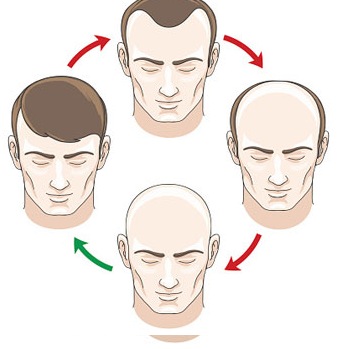
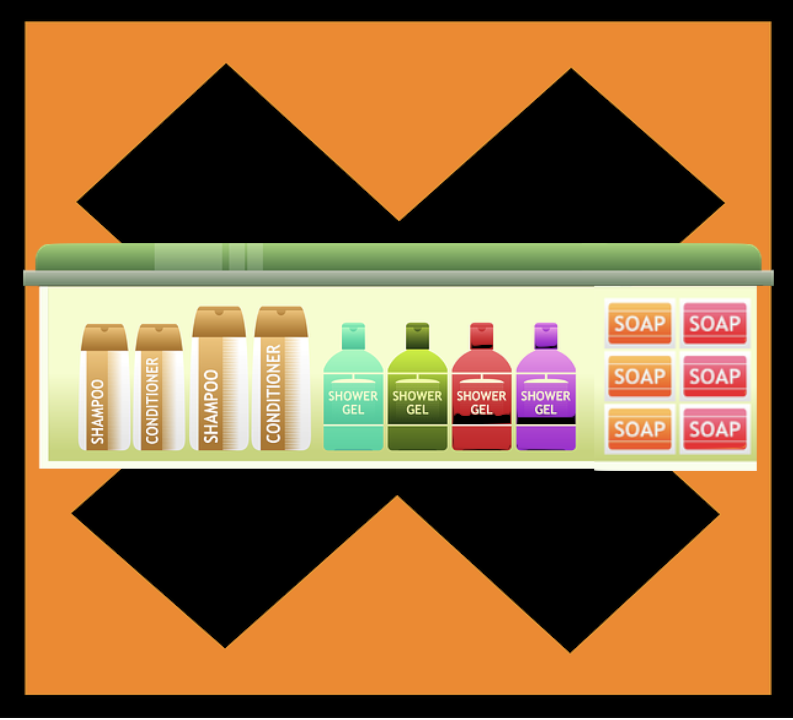
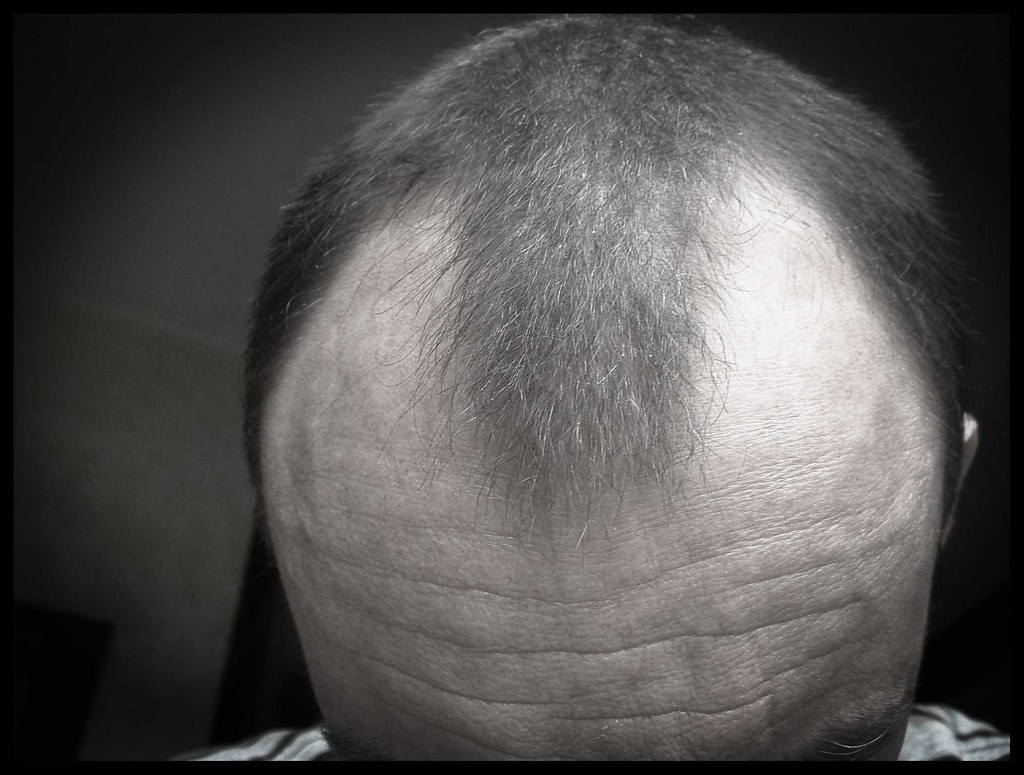
![By Nhtindia [CC BY-SA 4.0 (https://creativecommons.org/licenses/by-sa/4.0)], from Wikimedia Commons](https://situationalwellness.com/wp-content/uploads/2018/04/Medication-hair-loss.jpg)
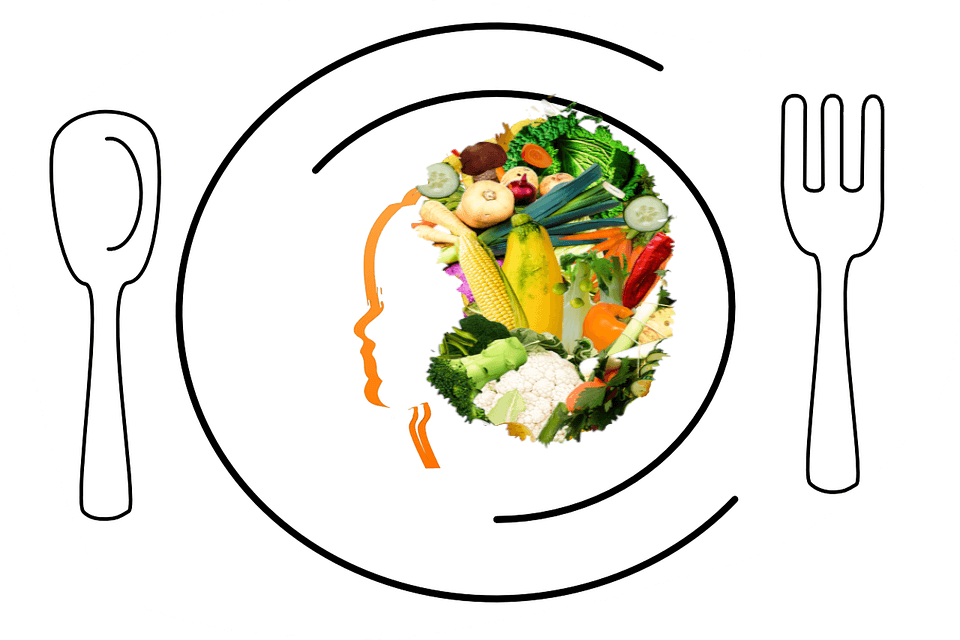
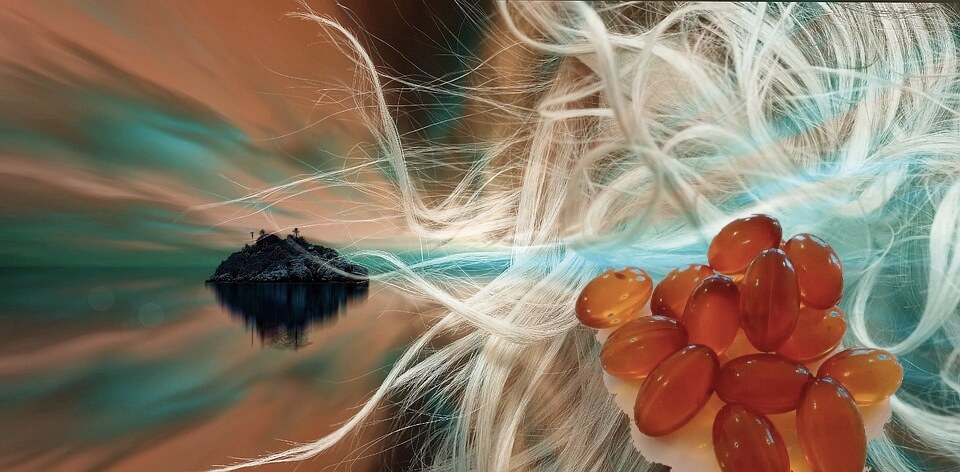
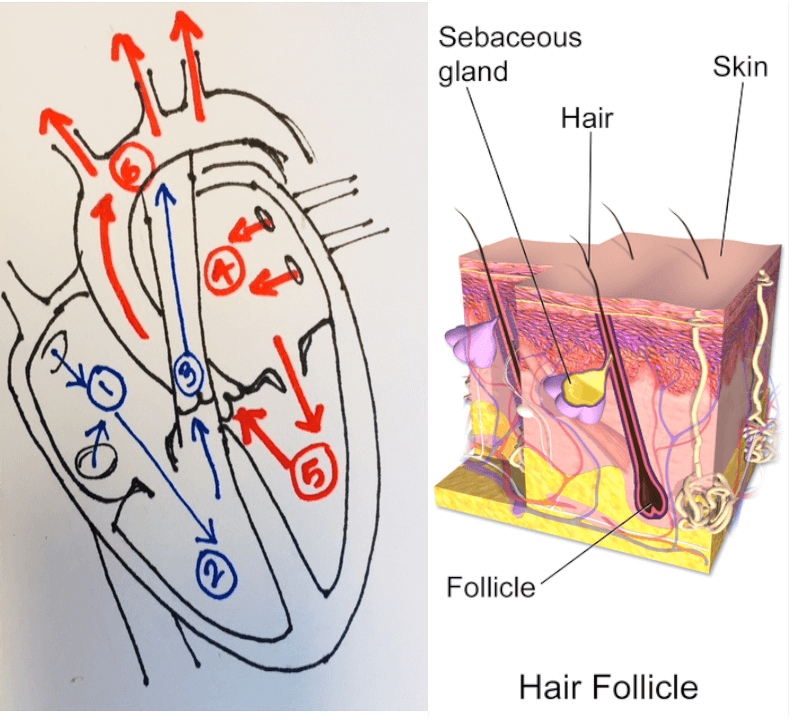
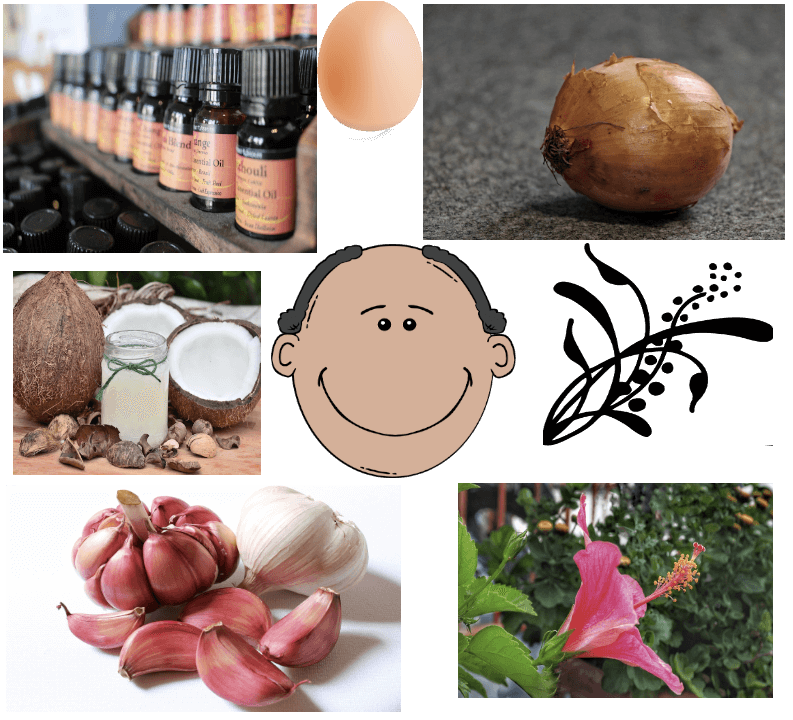
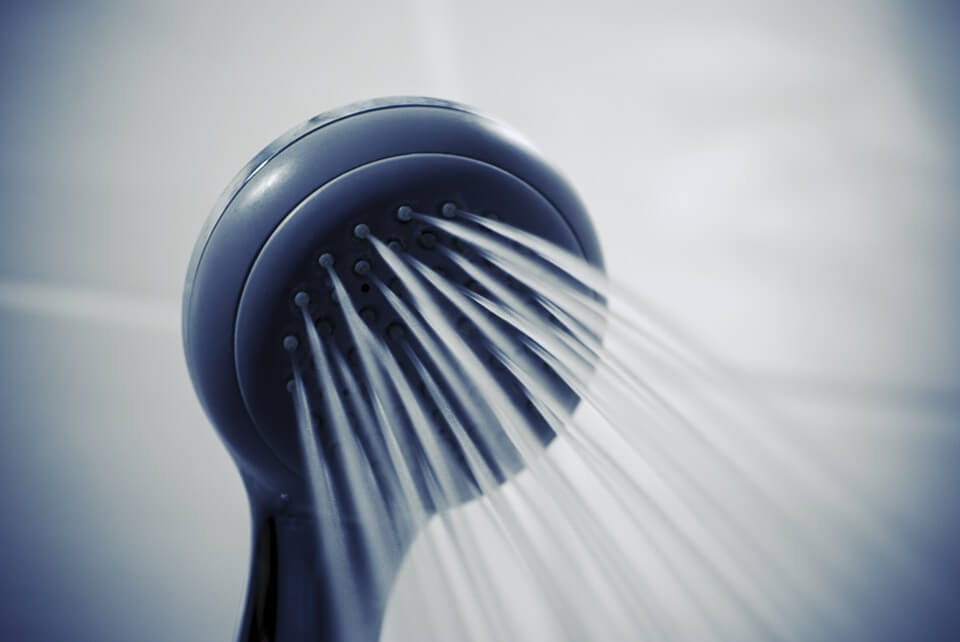
Another comprehensive article. I suffered from hair thinning few years ago when I was in college due to stress, poor diet, and using shampoos that are loaded with tons of harmful chemical you listed in your article. Ever since I stopped using these toxic shampoos and started the organic shampoos that are made out of natural ingredients. My hair thinning stopped. So reading your article validated that these chemical were the culprit of my hair thinning problem. I love the natural remedies you listed. They are very helpful. My husband also suffers from hair loss. He has been using essential oils. And they do help. I will be trying out your DIY tips. Thank you so much for the wonderful article. And as always, I learn something new every time I visit your blog. Looking forward to your next article. Have a great day!
Hong
Thanks Hong,
I used to have very thick hair when i was in my teens but started to thin substantially when reached my early 20s. My hair definitely needs help and i as well only use natural products in my hair. I switched to African black soap by virtue of meeting a merchant at the public market when i was visiting in South Carolina last summer. He told me about the benefits of how it can help your skin and hair. So, I use it as body wash as well as a shampoo alternative. I’m losing a lot less hair than I was previously but i need to do more. I’m going to try out the rosemary oil and the onion juice for starters and see what happens from there. I’m glad to hear your husband is finding remedy with the essential oils. If his hair condition continues to improve please don’t hesitate to let me know. I’ll take all the tips and positive testimony i can get.
Thanks again for chiming in and have great rest of the weekend and week ahead, Brad